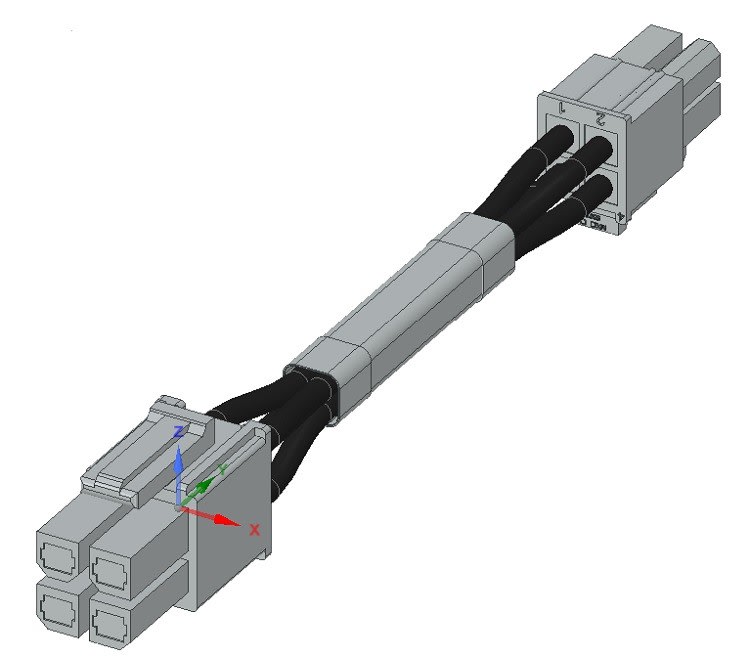Ordering Cables Off-the-Shelf
Follow articleHow do you feel about this article? Help us to provide better content for you.
Thank you! Your feedback has been received.
There was a problem submitting your feedback, please try again later.
What do you think of this article?
Connectors are simple and yet fantastically useful devices. Their sole purpose is to join two electrical circuits together in a safe, practical way. Despite this simple purpose, they are used for a huge array of tasks in almost every area of modern life.
Some uses are familiar to all of us. Connectors deliver power to household equipment, connect computers to the internet and provide our home entertainment. Beyond the everyday, connectors are used in every field of human endeavour, from medical research to spaceflight.
Correct Termination
However, it is important to remember that a connector is only as good as its link to the electrical circuit it is connecting. Many failures across industry can be traced to incorrect termination of wires and cables, which can cause anything from a simple lack of signal to a dangerous short circuit.
Fortunately, connector manufacturers devote a huge amount of time and effort to provide the best possible termination method for their customers. Whether traditional solder bucket connections or advanced spring clamp techniques, there are lots of options for customers when selecting their connectors. However, one of the most popular and reliable is the use of crimp contacts.
Crimping is a mechanical process. The basics are straightforward: an electrical contact is shaped to grip the wire to which it connects, this provides a secure physical joint which provides both mechanical strength and good electrical continuity. The advantage of using a crimp termination is that the process is reliable and repeatable. If the operator uses the correct crimp tool, every joint should be an exact replica of the first.
Choosing the Right Tool
In fact, connector manufacturers like Molex spend a long time designing crimp tools to deliver the best possible performance from the contacts. The contacts are designed to perform to a certain standard, but only as long as the correct crimp tool is being used. Use of the wrong crimp tool will prevent the contact from working correctly, but the correct tool will deliver consistent results, time after time.
Choose the right tool - a Molex Premiumgrade hand crimp tool (710-6552)
This is ideal for a customer who needs to terminate a large number of connectors. Crimp tools are relatively expensive when compared to the contacts that they terminate, but if the crimp tool is used in a production situation, the cost per crimp is negligible.
However, not all customers are in a position to make an investment in tooling. The reasons for this are varied but could include small production runs that do not justify the cost of tooling. In these circumstances, customers often work with partners who specialize in manufacturing cable assemblies. However, the cable assembly partner might not have experience with (or the tooling for) the particular connector that the customer wishes to use.
The challenge is even greater in the design and development phase. While creating a new product, engineers might need to choose from several different connector options. If prototypes need to be created, cables must be made. If a prototype fails and is redesigned, the expensive crimp tooling purchased to make it might become useless overnight, adding needless cost to the development budget.
Customers, therefore, need to consider the cost of adopting a new connector design. The latest development might provide an ideal solution for the customer’s requirements, but the cost of tooling can prevent its use. Under these circumstances, the customer might find themselves compromising their design to use a more familiar connector for which the tooling is readily available.
Off-the-Shelf Cables
Molex understands that no one likes to compromise their design. Molex is constantly designing new products to solve the connectivity needs for a wide range of industries, and they understand that there are barriers to adopting these new technologies.
It was to solve this problem that Molex introduced the Off-The-Shelf (OTS) cable service. The OTS service was designed to provide customers with the chance to buy cable assemblies directly from the manufacturer. In this way, the customer can use a cable that is manufactured by in-house Molex experts using genuine tooling and testing equipment.
The customer can choose from a range of pre-made OTS cables for some of the most popular Molex connectors. Customers can buy OTS cables in standard lengths for several of the most popular connector families in the Molex range, including Pico-Clasp (134-8996) , Pico-Lock (151-3257) and Mega-Fit (174-5550) .
There are some applications that do not allow an Off-The-Shelf solution, and so the Molex Custom Cable Creator allows customers to specify their own cable assemblies. The Custom Cable Creator allows users to choose from a wide range of connector solutions, and specify variable including wire style, cable length and even custom pinouts. The Creator will then provide the opportunity to download a 3D model, order a sample or obtain a quote, safe in the knowledge that the cable will be made to the exacting standards of Molex.
Custom 3D Model from the Molex Custom Cable Creator
Using the right tooling is vital to the correct installation of connectors, and yet the cost of tooling can prevent the adoption of the ideal product. In creating a solution for both the development engineer and the small-batch manufacturer, Molex has removed this barrier. Perhaps this could be the solution to your next design problem too.



